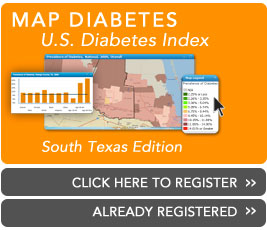Posted by Staff
News
Thursday, February 28th, 2013
Diabetes Care March 1, 2013
Type 2 diabetes is an increasingly common disease (1) that places a considerable economic burden on society. An estimated 171 million people were suffering from diabetes in 2000, and this number could total 366 million by 2030 (1). Type 2 diabetes accounts for more than 90% of all diabetes cases, and it often appears in middle age (2). In 2010, the prevalence of diabetes in the U.S. was 11.3 and 26.9% among individuals aged 20 years or over and 65 years or older (2), respectively. Read more
Posted by Staff
News
Thursday, February 28th, 2013
JAMA Intern Medicine: February 25, 2013
mportance Acute pancreatitis has significant morbidity and mortality. Previous studies have raised the possibility that glucagonlike peptide 1 (GLP-1)–based therapies, including a GLP-1 mimetic (exenatide) and a dipeptidyl peptidase 4 inhibitor (sitagliptin phosphate), may increase the risk of acute pancreatitis.
Objective To test whether GLP-1–based therapies such as exenatide and sitagliptin are associated with an increased risk of acute pancreatitis. We used conditional logistic regression to analyze the data.
Design Population-based case-control study. Read more
Posted by Staff
News
Thursday, February 28th, 2013
CDC: February 21, 2013
Introduction
The Chronic Care Model (CCM) uses a systematic approach to restructuring medical care to create partnerships between health systems and communities. The objective of this study was to describe how researchers have applied CCM in US primary care settings to provide care for people who have diabetes and to describe outcomes of CCM implementation.
Methods
We conducted a literature review by using the Cochrane database of systematic reviews, CINAHL, and Health Source: Nursing/Academic Edition and the following search terms: “chronic care model” (and) “diabet*.” We included articles published between January 1999 and October 2011. We summarized details on CCM application and health outcomes for 16 studies.
Results
The 16 studies included various study designs, including 9 randomized controlled trials, and settings, including academic-affiliated primary care practices and private practices. We found evidence that CCM approaches have been effective in managing diabetes in US primary care settings. Organizational leaders in health care systems initiated system-level reorganizations that improved the coordination of diabetes care. Disease registries and electronic medical records were used to establish patient-centered goals, monitor patient progress, and identify lapses in care. Primary care physicians (PCPs) were trained to deliver evidence-based care, and PCP office–based diabetes self-management education improved patient outcomes. Only 7 studies described strategies for addressing community resources and policies. Read more
Posted by Staff
News
Thursday, February 28th, 2013
Health Day: February 20, 2013
WEDNESDAY, Feb. 20 (HealthDay News) — A staggering one in eight Americans has been diagnosed with type 2 diabetes, a new Harris Interactive/HealthDay poll suggests.
And more than one third of those polled have been diagnosed with diabetes or have a parent, sibling, spouse or child with the condition.
“Type 2 diabetes has become one of the most common and fastest growing diseases. Fully one in eight adults — approximately 29 million people — now report that they have been diagnosed with this dangerous condition,” said Harris Poll Chairman Humphrey Taylor.
Added Dr. Ronald Tamler, clinical director of the Mount Sinai Diabetes Center in New York City: “Diabetes is very insidious. You don’t know you’re in trouble until the complications hit or until it’s so out of control you have uncontrolled urination and thirst” — two of the common symptoms of diabetes. Read more
Posted by Staff
News
Thursday, February 28th, 2013
The Diabetes Educator: February 20, 2013
Purpose Diabetes educators lack data systems to monitor diabetes self-management education processes and programs. The purpose of the study is to explore diabetes educator’s insights in using a diabetes education data management program: the Chronicle Diabetes system.
Methods We conducted 1 focus group with 8 diabetes educators who use the Chronicle system in western Pennsylvania. The focus group was audiotaped and transcribed verbatim. Themes were categorized according to system facilitators and barriers in using Chronicle. Read more
Posted by Staff
Minority Diabetes Reports
Thursday, February 28th, 2013
Diabetes Care: March 1, 2013
Type 2 diabetes is a serious, costly, and potentially preventable public health problem in the U.S., and both the prevalence and incidence of diabetes have increased rapidly since the mid-1990s (1). Currently, >7% of adults in the U.S. have been diagnosed with type 2 diabetes, and diabetes-related care accounts for 11% of all U.S. health care expenditures.
African Americans bear a disproportionate burden from diabetes and its complications. Compared with Caucasians, African Americans are almost twice as likely to suffer from type 2 diabetes and to experience diabetes-related blindness and lower-limb amputations, and two to six times more likely to have kidney disease (3). Furthermore, these disparities are enhanced when in tandem with other axes of inequality, such as geographic region, age, or sex. Read more
Posted by Staff
Minority Diabetes Reports
Thursday, February 28th, 2013
Diabetes Care: March 1, 2013
Relative to individuals with European ancestry, presence and severity of calcified atherosclerotic plaque (CP) are markedly lower in individuals with African ancestry (1,2). Factors potentially contributing to the ethnic variation in susceptibility to atherosclerosis include different relationships between CP and serum 25 hydroxyvitamin D concentrations and pericardial adipose tissue volumes in African Americans (AAs) relative to European Americans (EAs) (3,4). In addition, significant positive associations have been observed between CP and albuminuria in EAs with type 2 diabetes (5) but not AAs (419 subjects from 297 African American Diabetes Heart Study [AA-DHS] families) (6). Therefore, it remains unclear whether ethnic differences exist in the effect of albuminuria on risk for development and progression of CP. Read more



























